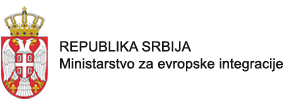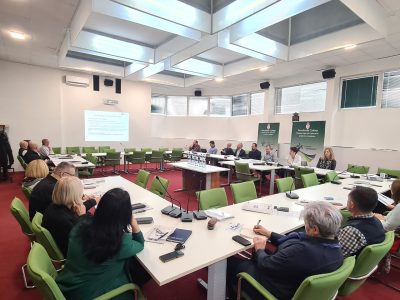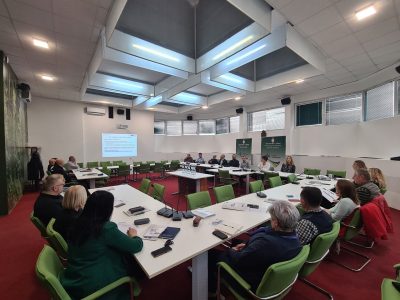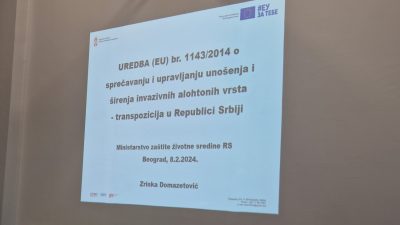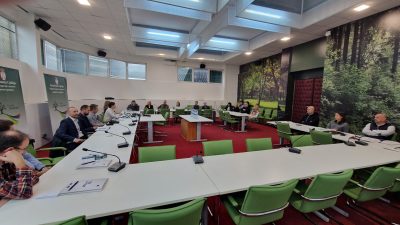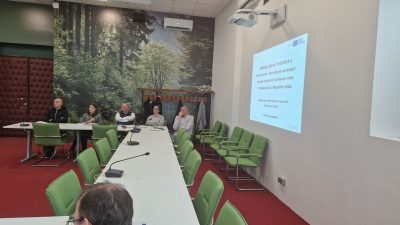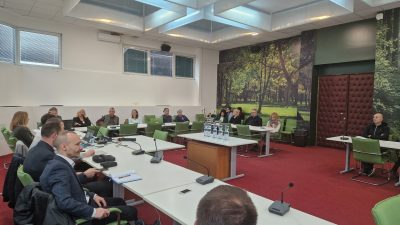Chapter 27: alignment of legislation with the Invasive Alien Species Regulation
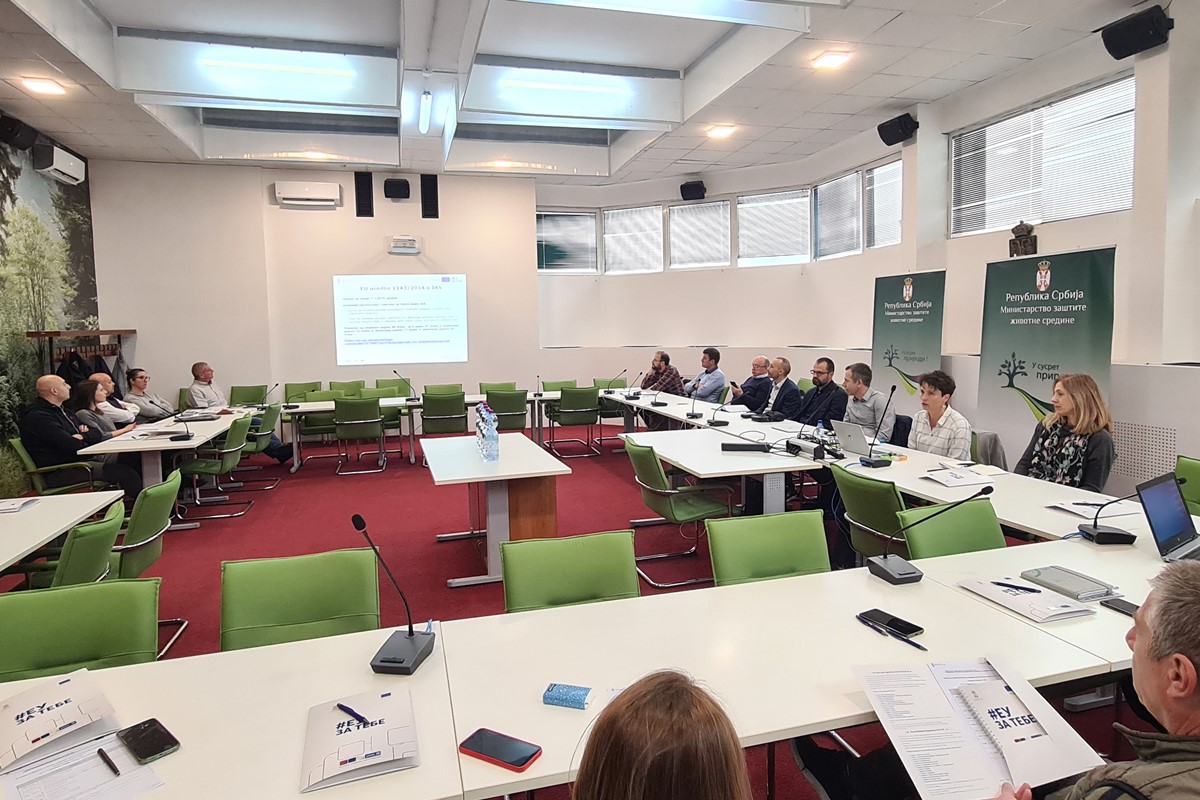
In the sub-area of Negotiating Chapter 27 – nature protection, the PLAC III project has provided support to the national administration of Serbia in the alignment the legislation on invasive alien (non-native) species with Union acquis.
In the European Union, Regulation 1143/2014 on the prevention and management of the introduction and spread of invasive alien species (as amended by Regulation (EU) 2016/2031) sets out rules to prevent, minimise and mitigate the adverse impact on the biodiversity of the introduction and spread within the Union, both intentional and unintentional, of invasive alien species.
In Serbia, articles 82 and 83 of the Law on Nature Protection regulate the introduction of allochthonous wild species into the wild and the unintentional introduction of allochthonous wild species and hybrids thereof into the wild on the territory of the Republic of Serbia. These provisions prescribe a mechanism for declaring invasive species on the territory of the Republic of Serbia, based on acknowledged international criteria, scientific findings and obligations arising from international agreements and international documents. However, the provisions mentioned above are not aligned with Regulation (EU) 1143/2014 and related implementing regulations of the European Commission.
The revised National Programme for the Adoption of the Acquis 2022- 2025 envisages the adoption of the amendments to the Law on Nature Protection and the rulebook to achieve full compliance with the invasive alien species acquis.
The expert assistance provided by the PLAC III project to the Ministry of Environmental Protection included the development of a detailed legal and institutional gap assessment with recommendations, preparation of amendments to the Law on Nature Protection governing IAS and of a draft by-law to fully align the national legislation with the relevant Union acquis.
The results of the project experts’ work together with the line Ministry were presented at a workshop held in Belgrade on 8 February 2024. Expert Zrinka Domazetović presented the EU Regulation, which was adopted in 2015. There are currently 88 species on the list of the Union whose introduction, keeping, transportation, exchange and release into nature is prohibited. The Regulation stipulates that Member States must have fully operational official controls necessary to prevent the deliberate introduction of invasive alien species. They are also obliged to prevent accidental entry, as well as to an early notification, monitoring and reporting if it has occurred.
Domazetović presented the proposal of amendments to the Law on Nature Protection to the workshop participants. A new terminology was introduced, according to which these are allochthonous species. Among other, amendments stipulate that the provisions on allochthonous species and invasive allochthonous species do not apply to species that change their natural distribution area without human intervention (due to changes in ecological conditions and climate change), GMOs, pathogens that cause animal diseases, harmful organisms for plants and plant products, as well as microorganisms in plant protection products and biocide products. The proposal for the Rulebook on Invasive Allochthonous Species contains as an annex the so-called “white list” on which there are species that do not pose an ecological risk.
The workshop was attended by representatives of the line Ministry.
Relevant Union acquis:
- Regulation (EU) 1143/2014 on the prevention and management of the introduction and spread of invasive alien species
- Implementing Regulation (EU) 2019/1262 updating the list of invasive alien species of Union concern
- Delegated Regulation (EU) 2018/968 with regard to risk assessments in relation to invasive alien species
- Commission Implementing Regulation (EU) 2018/1454 specifying the technical format for reporting by the Member States
Photo gallery:
Recent Posts

Notice
9. April 2024.

The fourth project brochure published
29. March 2024.

The last meeting of the Steering Committee
28. March 2024.
Negotiation chapters
- Chapter 1: Free movement of goods
- Chapter 3: Right of establishment and freedom to provide services
- Chapter 8: Competition policy
- Chapter 9: Financial services
- Chapter 10: Information society and media
- Chapter 11: Agriculture and rural development
- Chapter 12: Food safety, veterinary and phytosanitary policy
- Chapter 13: Fisheries
- Chapter 15: Energy
- Chapter 16: Taxation
- Chapter 27: Environment
- Chapter 28: Consumer and health protection
- Chapter 32: Financial control
- Chapter 33: Financial and budgetary provisions
